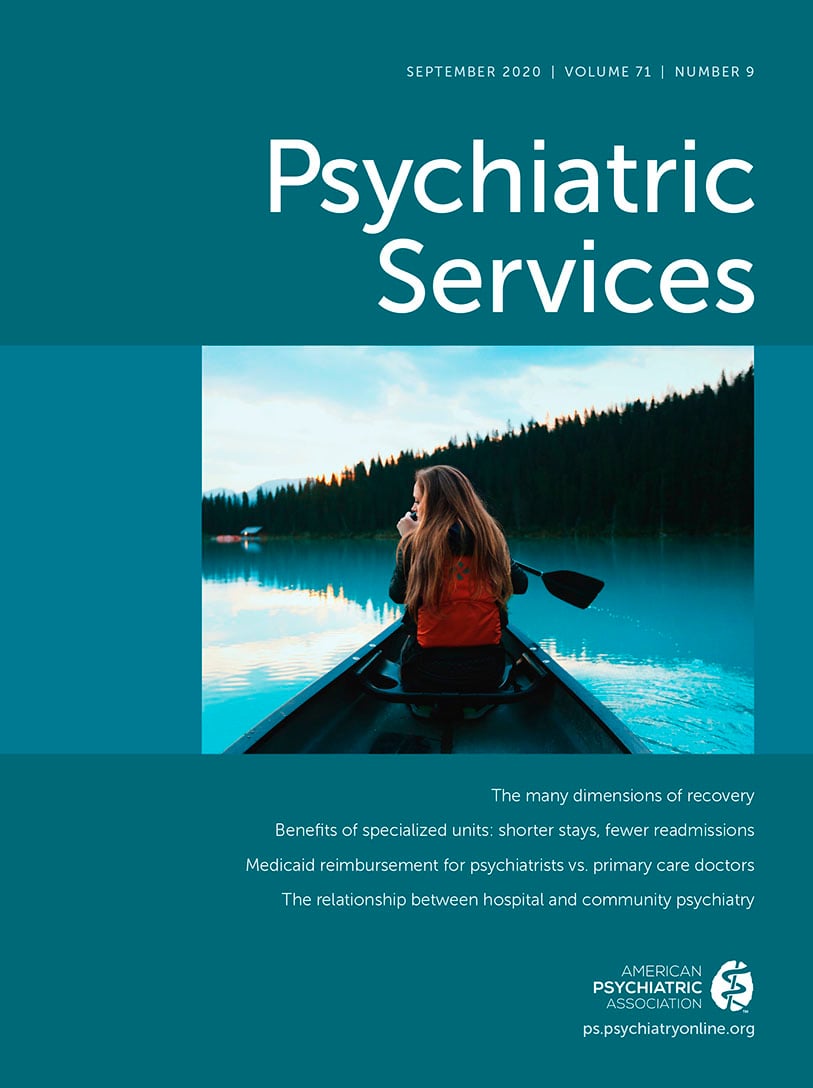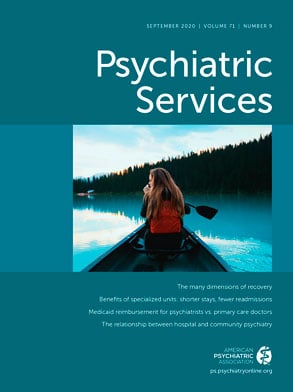The collaborative care model (CoCM) is an evidence-based and cost-effective strategy for treating common behavioral health problems in primary care. CoCM emphasizes key population health principles and hinges on systematic teamwork between the primary care provider (PCP), a designated psychiatric consultant (DPC), and a behavioral health care manager (BHCM). The efficacy of CoCM was first demonstrated over 15 years ago, and the model is now validated by more than 80 randomized controlled trials across diverse populations and for patients with numerous behavioral health and comorbid medical conditions.
Despite CoCM’s strong evidence base, critics and proponents have raised questions about its financial sustainability. With limited opportunities to yield revenue for services outside of face-to-face visits, implementing organizations have often had trouble financially supporting the model. That changed in 2017, when the Centers for Medicare and Medicaid Services (CMS) announced three new “incident-to” billing codes (i.e., codes reimbursing for nonphysician services rendered after an initial physician visit) (
1), offering an unprecedented, large-scale opportunity for funding CoCM (
2).
In 2018, the CoCM codes were formally integrated into the Current Procedural Terminology (CPT) code set as 99492, 99493, and 99494 (
1). Since then, they have been adopted by many commercial payers and a growing number of Medicaid programs (
3). The codes are designed to reimburse “billing practitioners” (typically the PCP) for the cumulative time the health care team spends delivering CoCM each calendar month, up to 130 minutes during the initial month and 120 minutes in subsequent months (
1). They are available for use with traditional and some alternate payment models (e.g., comprehensive primary care plus and Medicare accountable care organizations). Their applicability to all treatment activities gives CoCM codes a formidable advantage over other CoCM billing options, including codes for psychotherapy (e.g., CPT 90832) and physician telehealth services (CPT 99441–99443).
Given this advantage, policy leaders predicted extensive interest in the CoCM codes. At the same time, they anticipated slow uptake, similar to CMS’s previously activated chronic care management codes (
4), because both models require considerable billing workflow adjustments. Although a recent study confirmed the projected sluggish rate of CoCM code uptake (
5), emerging data on early adopters (
6) demonstrates the potential for success. Additionally, published articles and information available for free online provide a blueprint for implementing CoCM billing (
2,
7,
8).
This column offers a case study in addressing challenges in using CoCM codes on the basis of the initial experiences of the University of Washington Neighborhood Clinics (UWNC), an academically affiliated primary care clinic system in Seattle and the largely urbanized western Washington region. Of note, the Advancing Integrated Mental Health Solutions (AIMS) Center at the University of Washington, which assists health systems state- and nationwide with CoCM implementation (including billing), did not directly orchestrate billing initiation in the UWNC, although both entities are based at the University of Washington. Only resources available for free, such as the AIMS Center Web site, a billing toolkit (
8), and public office hours, were accessed.
The potentially cumbersome requirement that teams track all CoCM-specific minutes for each enrolled patient throughout the calendar month may create difficulties for users of the CoCM codes. As a solution, the UWNC system leverages its electronic medical record (EMR) to track minutes and alert clinicians when billing time thresholds are reached. This has proven to be an effective and efficient system that fits into clinicians’ documentation workflows. In smaller systems, where such EMR changes may be cost prohibitive, a simpler approach using spreadsheets can be equally effective. Importantly, according to a recent study, the inability to leverage EMR services for time accrual is not an insurmountable barrier to billing using the CoCM codes (
6).
Another code-specific challenge is CMS’s stipulation that monthly CoCM minute totals be exclusively based on accrued BHCM time, with the value of other team members’ collective efforts accounted for in one monthly payment. To meet this requirement, the BHCM continuously tracks all minutes spent coordinating with other team members and incorporates them into monthly totals. When appropriate, UWNC PCPs and DPCs also provide direct patient visits, which are billed separately by using traditional fee-for-service codes. The BHCM may also bill using fee-for-service codes for direct care and CoCM codes for indirect care. In one UWNC pilot clinic using this model, the BHCM billed over 160 hours of exclusively indirect services within the first 6 months of CoCM code billing.
An additional barrier to using CoCM codes is the specific “incident-to” requirement that the billing practitioner (often the PCP) must acquire and document patients’ verbal consent to participate in the program, even though those practitioners do not directly render the majority of the clinical service. This consent discussion must include mention of possible cost sharing and occur prior to the delivery of CoCM services. PCPs may find this task challenging because it is potentially time consuming and involves talking about payment.
To mitigate the impact of these consent-related challenges, UWNC developed a set of resources to simplify the process, including a consent script (a “pitch” to obtain consent and provide answers to frequently asked questions), EMR documentation shortcuts, patient-friendly handouts (including instructions to help patients contact their insurance company for a cost estimate), a table of CoCM CPT codes, and alternative workflows for obtaining consent after the visit (e.g., via telephone or patient portal). In the UWNC system, all consenting patients receive a brief unbilled telephone orientation with the BHCM in order to help answer any further questions about CoCM or its associated billing practices.
Although the involvement of a DPC is required in order to provide effective CoCM services and bill its associated codes, some organizations may find it challenging to secure such support in the context of funding and workforce shortages. The UWNC system optimizes limited DPC time through weekly 1-hour case reviews with the BHCMs. When indicated, the DPC may also individually see CoCM-enrolled patients in person or via video conferencing. This model carries less financial risk than hiring a full-time psychiatrist and allows for remote DPC consultation, which is especially advantageous in rural areas (
9).
The CoCM CPT codes and their associated workflows necessitate a comprehensive implementation strategy. The UWNC system tasked an interdepartmental, interdisciplinary project team with understanding the coding nuances and tailoring plans to each clinic. This team, which included a population health program manager, the UWNC social work manager, and the CoCM medical director, provided training and oversight of the billing program before, during, and after the initial implementation phase. Although this team increased the program’s cost, it was instrumental to have dedicated staff focused on training providers, identifying PCP champions, troubleshooting, tracking code utilization, and ensuring workflow maintenance. To effectively address known and unexpected challenges, other large health care systems aiming to adopt the CoCM codes should consider dedicating a project team or manager to implementation oversight.
In the UWNC system, the aforementioned strategies facilitated the launch and ongoing use of CoCM billing codes. However, the codes remain imperfect, and a variety of modifications have been proposed to facilitate broader uptake, particularly in lower-resourced settings. Examples include reducing BHCMs’ documentation burden, removing the cap on billable time per month, and easing the billing provider consent stipulation, which is not explicitly required for Medicare’s chronic care management codes. Despite some challenges, the UWNC experience thus far demonstrates that CoCM codes can successfully be used in a large academic primary care system to help move this highly effective service model toward financial sustainability.
Acknowledgments
The authors thank the University of Washington Neighborhood Clinics and the Department of Population Health Management.

